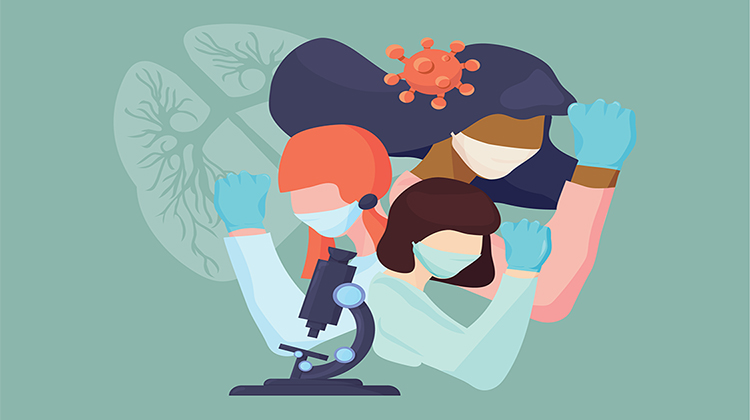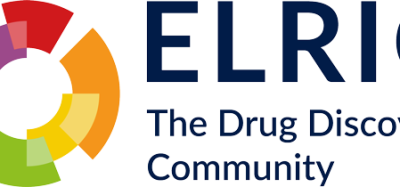Women in Stem with Katherine Tran
Posted: 13 March 2024 | Katherine Tran (SCIEX), Taylor Mixides (Drug Target Review) | No comments yet
Introducing Kratherine Tran! Katherine joined the SCIEX team with a strong desire to further the company’s mission of delivering solutions to advance human wellness. Her main area of interest is within mass spectrometry-based proteomics from which she has accumulated a wealth of knowledge and experience in this space over the past 10 years.


Can you tell us about your journey in the field of STEM and the challenges you encountered along the way?
To be honest, this is something I have never taken the time to reflect on until now. At first thought, I would say my journey in the field of STEM has been an exciting and rewarding experience. However, when I get to really think back on my journey throughout STEM, it has honestly been quite a rollercoaster ride with many bumps along the way.
Being a young Asian woman in STEM, in a senior role, with several health issues that have presented challenges to my work over the years, I faced difficulty with being overly self-conscious and constantly questioning whether someone’s actions are racially motivated, sexual, or asking myself, “am I overreacting completely?”.
For example, at the start of my career in the field of STEM, I was selected for a job interview following the application process, but when I came to the interview, the person who was supposed to be interviewing me refused to come and talk to, or even acknowledge me. I thought this was very strange and I didn’t know why this was happening. Maybe it was a bad time and they needed to reschedule the interview, I thought. But then one of the employees told me that they were not going to do the interview. I was so confused. I was dressed appropriately, and there were other women in the building, so it was not because of either of those reasons. I must have been qualified for the job if I got selected from the application process. I was so embarrassed, I ended up just leaving.
Then, in my early 20s, I was quickly promoted to a global executive role, however I was initially criticised by my team for my age and whether I deserved such a high- level role with that big of a responsibility. In another workplace, I had a temporary supervisor who would graze himself on me whenever he tried to get by me. To this day, I still think about whether there was enough space in each circumstance that this could have or should have happened, because I never had any issues with any other co-workers.
Though I’ve had many highs and major downs, I am still so grateful to be where I am today, inspired by the amazing people in my industry, and truly honoured to be a featured woman in STEM for this edition of Drug Target Review.
What inspired you to pursue a career in STEM, and how did you overcome any obstacles or biases you may have faced?
My love for the sciences came at an early age. I knew I wanted to pursue a career in the field when I was in grade school and we were given a project to design and create a working device to demonstrate our understanding of circuits. I created a metal detector for that project, but it was the thrill of understanding why things work the way they do that excited me. Into high school I grew a strong interest in chemistry and biology which led me to taking on a biochemistry degree in undergraduate school. It was then, in the first year of my undergrad when my grandfather passed away due to a misdiagnosis, that my desire to pursue a career in human health and medicine was solidified.
Unfortunately, medical diagnostic errors occur more frequently than I would have expected, even to this day. In 2020, it was reported that 12 million people are affected by medical diagnostic errors in the United States each year, with an estimate of 40,000 to 80,000 people dying annually from complications from these misdiagnoses. Furthermore, women and minorities are 20 to 30 percent more likely to be misdiagnosed. This is why I am so passionate about being in the biotechnology industry which aims to further our understanding of life sciences and develop new methods and technology to improve all life. There is still much we don’t know about, and I believe that the more we can learn while continuously taking this information to improve the tools we have, the less medical diagnostic errors we can expect.
Throughout my journey in STEM, I didn’t experience much opposition from people for pursuing my career path. In the time when I was starting out my career, it was almost an advantage to be a woman in STEM because so many people would want to talk to me. However, the question was whether people wanted to talk to me because of my intellect or for other reasons. It was ultimately my health issues which affected the path I took in my career as they unfortunately hindered my fine motor skills and prevented me from advancing in lab-based research. As a result, I shifted towards more data analysis work at that time. To me there is a silver lining to this, because it changed my direction towards something I ended up really enjoying, where I can still work in a field that I am passionate about, and contribute in a way that harnesses the skills I am able to excel in. Hopefully this is something others can take away from me – that no matter the obstacles, there is always a way to achieve the goals in your life.
Could you share an example of a specific project or research that you have worked on and the impact it has had in your field?
I am currently working on a project called, ‘Extraordinary Science’. With the goal to promote novel work from proteomics researchers worldwide using high-resolution accurate mass technologies, like the SCIEX ZenoTOF 7600 system, this has the opportunity to be a very powerful project for the field. . We are currently expanding this initiative out to other omics researchers, but what I love about this project is that we are hopefully making the community aware of the exciting advancements that their colleagues are doing in the field, the methods and technology they are using and how it can help in their own work. The term ‘Extraordinary Science’ was coined in the 1960s by Thomas Kuhn, a historian and philosopher of science, where he explained that extraordinary science is about new ideas and discoveries. With this in mind, we hope that this project will help our community grow together and empower one another to achieve next-level, ‘extraordinary science’.
How has your research in STEM contributed to advancements or improvements in your field, and what potential future applications or implications do you foresee based on your work?
Throughout the various roles in my career, I have had the privileged opportunity to be a part of a plethora of research projects with leading researchers around the world. This has always been my favourite part of my career because no two days are ever alike. One day you could be working with a researcher who is studying immunopeptidomics advancing our understanding of the immune system for personalised medicine, then the next day you could be working with someone researching drug discovery, or food and environmental research, or even forensics to name a few. Because I have the advantage of learning about various workflows and applications, their challenges and needs, I believe my work will help deliver better tools and solutions to the community by using this feedback.
As a woman in STEM, what unique perspectives or strengths do you believe you bring to your work?
For myself, I think my caring nature, attention to detail, and creativity is a strength for the work I do. However, that is not to say that women need to be caring, detail-oriented, or creative to succeed in STEM or in the same role as me. Instead, everyone has their own unique strengths no matter who you are, what gender, race, etc. I believe having all sorts of people from different walks of life with different skills, attributes, and experiences will make the best team and that is what we need in our field to succeed.
What advice would you give to young women who are considering a career in STEM but may be hesitant due to societal stereotypes or perceived challenges?
If you’re interested in it, you should try it! There should be nothing that holds you back if it is something you want to do. One’s individual merit or success should be solely based on skills, experiences and results that the person can deliver to a project or company, but not based on any physical appearances. Unfortunately, there will be challenges wherever we go, but it is so rewarding once you make it through. Overall, the community is truly supportive to one another, and over the last few decades, companies have been taking large strides towards making a more inclusive workplace.
How do you see the representation of women in STEM changing over the years, and what further progress do you believe is needed?
There certainly has been a positive shift for women in STEM over the years. We have some incredible women researchers in our community, Dr Erin Baker, Dr Catherine Costello, Dr Ying Ge, Dr Lisa Jones, and Dr Lingjun Li, to give some examples. These women are highly recognized and even ranked among the most influential scientists around the world! I have also noticed this shift at conferences, with a higher proportion of women attending each year compared to when I first started my career. However, I would say that with the increased influx of women in the field, there is still a small number of women in high-level leadership roles. Of course, this might be because it takes time from entry into a job before getting to the top, or because the women are simply not interested in these roles, but it is something I have observed.
In your opinion, what can organisations and institutions do to create a more inclusive and supportive environment for women pursuing STEM careers?
From my own experience, I don’t know if this is necessarily an issue at the organizational or institutional level. Nowadays, many companies and infrastructures have tremendous support and education for diversity, equity and inclusion (DE&I). Plus, in my field, there are additional support groups and mentorship outside of the workplace, like FeMS (Females in Mass Spectrometry) and Gage powered by 500 Women Scientists. We just need to make sure everyone is treated equally and that someone with the same skills and expertise as someone else is compensated and treated equally. However, I believe this is something that needs to be addressed on an individual-level and those individuals’ behaviour and bias towards women and underrepresented people.
Looking ahead, what exciting developments or advancements do you foresee in your field of STEM, and how do you envision your own research contributing to those future innovations?
For me, I particularly focus on the field of proteomics and what I am seeing in the industry is that mass spectrometry technology is rapidly evolving at an exponential rate. Each year, the systems are getting faster, more sensitive and more robust. We can now obtain a new level of depth from the data acquired from smaller sample sizes and in less time. For example, look at single cell proteomics, a new level of research that people never expected to see in their lifetime. I think the Danaher slogan perfectly describes where the industry is moving to, and that is we are doing science at the “speed of life”.
About the author


Senior Manager for Global Strategic Marketing in Proteomics Life Science Research at SCIEX
Katherine joined the SCIEX team with a strong desire to further the company’s mission of delivering solutions to advance human wellness. Her main area of interest is within mass spectrometry-based proteomics from which she has accumulated a wealth of knowledge and experience in this space over the past 10 years.
Related topics
Drug Delivery, Drug Development, Drug Discovery, Drug Discovery Processes, Drug Leads
Related organisations
SCIEX
Related people
Katherine Tran (SCIEX)








